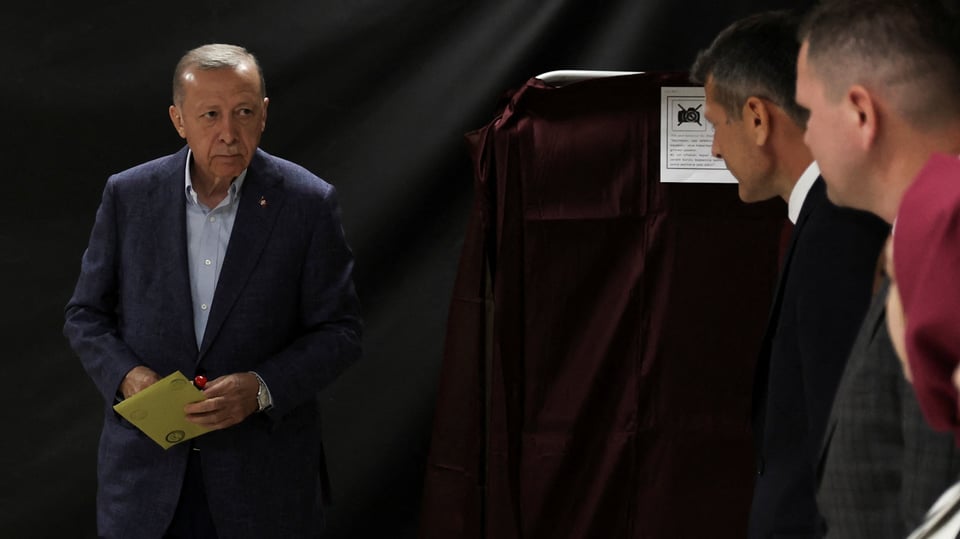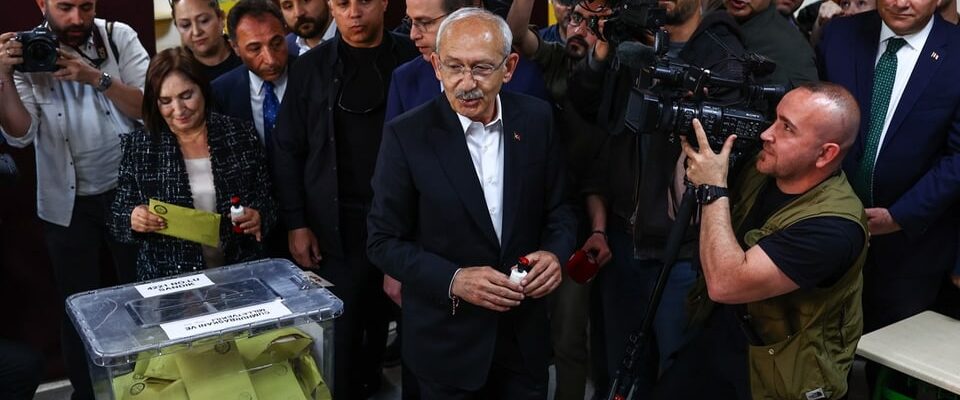- The government and the opposition are at odds over the preliminary results of Turkey’s elections.
- The percentages vary depending on media reports. There are no official results yet.
- According to the Anka news agency, the gap between President Recep Tayyip Erdogan (around 48 percent) and challenger Kemal Kilicdaroglu (around 46 percent) is narrowing with 81 percent of the votes counted. The big cities are still missing.
- The figures from the state news agency Anadolu are different: after counting around 79 percent of all ballots, Erdogan is around 50 percent, challenger Kemal Kilicdaroglu around 44 percent.
- There could be delays: according to media reports, Erdogan’s AKP is increasingly questioning the results in the city’s electoral districts. These must therefore be counted again, the data will not yet be forwarded to the election commission.
- For its part, the opposition has doubts about the widespread state results.
Opposition candidate Kilicdaroglu sees himself on course for victory and tweeted accordingly: “We are ahead”. A spokesman for Erdogan’s AKP, in turn, accused the opposition of trying to manipulate the results before the official figures were announced. “You have to wait for the results, everything will be counted,” says Ömer Celik.
General election: CHP in front
In addition to the presidential election, there was also a parliamentary election. Here Erdogan’s AKP is around 32 percent behind Kilicdaroglu’s opposition CHP with 34 percent, the Halk TV channel reported after counting 0.6 percent of the votes.
Polling stations across the country closed at 4 p.m. local time on Sunday. Results are expected later in the evening. A total of around 64 million people in Germany and abroad were called upon to elect the president and a new parliament. Pre-election polls predicted a neck-and-neck race between incumbent Recep Tayyip Erdogan and opposition leader Kemal Kilicdaroglu in the presidential election.
Legend:
Erdogan’s challenger Kemal Kilicdaroglu cast his vote in Ankara.
Keystone/EPO/SEDAT SUNA
Runoff in sight?
If none of the candidates gets more than 50 percent of the votes, the two strongest candidates will go to a runoff in two weeks. According to polls, only a low single-digit result is predicted for the candidate of an ultra-nationalist party alliance, Sinan Ogan.
Incumbent faces re-election
The incumbent President Recep Tayyip Erdogan has to fear for his re-election after 20 years in power. Polls anticipate a close race between him and opposition leader Kemal Kilicdaroglu.

Legend:
Incumbent Erdogan votes in Istanbul.
Reuters/UMIT BEKTAS
Kilicdaroglu is head of the social democratic party CHP and represents a broad coalition of six parties. He promises to abolish the presidential system, under which Erdogan has far-reaching powers.
Erdogan has greatly expanded power
The election took place in a tense atmosphere. Recently, concerns had been raised that Erdogan might not accept defeat. On Friday, however, the President declared that he would definitely accept the result.
Since the introduction of a presidential system five years ago, the 69-year-old Erdogan has had more power than ever before and can largely rule without parliament. Critics fear that the country with around 85 million inhabitants could slide completely into autocracy if he wins again. The vote in the NATO country is also being closely observed internationally.
Government largely controls the media
The election campaign was considered unfair, mainly because of the government’s superior media power. The determining topic was above all the poor economic situation with massive inflation.
Erdogan promised, among other things, an increase in civil servants’ salaries and further investments in the defense industry. He ran an aggressive campaign, calling the opposition “terrorists” and hostile to lesbian, gay and queer people.
Meanwhile, opposition leader Kilicdaroglu wants to restore the independence of institutions like the central bank and get inflation under control. He stands for a rapprochement with the EU, but also for a stricter migration policy.
